Suchergebnisse
IEA EBC - Strategic Plan 2014 - 2019
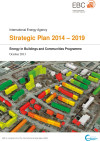
Energy in Buildings and Communities Programme
Herausgeber: IEA-Energy in Buildings and Communities Programme
Englisch, 36 Seiten
Downloads zur Publikation
IEA Bioenergy Newsletter #22 (2010)
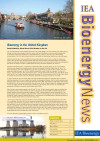
Englisch, 8 Seiten
Downloads zur Publikation
Energieforschungserhebung 2009
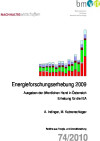
Ausgaben der öffentlichen Hand in Österreich
Erhebung für die IEA
Schriftenreihe
74/2010
A. Indinger, M. Katzenschlager
Herausgeber: BMVIT
Downloads zur Publikation
IEA SHC Solar Newsletter "Sustainable SolarHousing" Vol .44 October 2005

Experts in the joint work of the IEA Solar Heating and Cooling Programme and the IEA Energy Conservation in Buildings and Community Systems, SHC Task 28/ECBCS Annex 38: Sustainable Solar Housing, collaborated to research how better to build very low energy, solar housing.
Englisch
IEA Bioenergy - Annual Report 2012
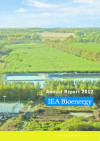
Herausgeber: IEA Bioenergy
Englisch, 124 Seiten
Downloads zur Publikation
DYNASTEE Newsletter Issue 2016/6

Hans Bloem, Luk Vandaele
Herausgeber: DYNASTEE
Englisch, 4 Seiten
IEA Bioenergy - Annual Report 2010

Herausgeber: IEA Bioenergy
Englisch, 144 Seiten
Downloads zur Publikation
IEA Bioenergy Annual Report 2015
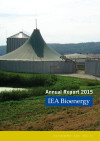
Herausgeber: IEA Bioenergy
Englisch, 136 Seiten
Downloads zur Publikation
IEA SHC - Strategic Plan 2014-2018
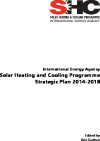
Herausgeber: IEA-Solar Heating & Cooling Programme
Englisch, 34 Seiten
Downloads zur Publikation
IEA Bioenergy Conference 2012
13. - 15. November 2012
Schloß Schönbrunn Conference CenterVienna, AT
Provides recent research and market developments in bioenergy. The conference includes all topics dealt with by IEA Bioenergy as well as by partner organizations like FAO, GBEP and UNDP.
IEA Bioenergy Task 32: Biomass Combustion and Co-firing (Working Period 2016 - 2018)
Austrian participation in Task 32 "Biomass Combustion and Cofiring" in the working period 2016-2018 and active participation in the defined Task main objectives, events and projects which are of relevance for Austria. International and national dissemination and networking activities for information exchange and for the initiation of cooperation.
IEA Bioenergy Task 37: Energy from Biogas (Working Period 2016 - 2018)
Participation as Austrian representative in the expert group during the period 2016-2018 in order to achieve knowledge-exchange, establishment of technical reports and recommendations, as well as dissemination of the gained information to Austrian stakeholders.
IEA-Bioenergy Task 40 Newsletter
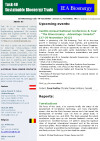
IEA-Bioenergy Task 40
Englisch, 4 Seiten
Downloads zur Publikation
IEA Bioenergy - Annual Report 2011
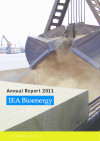
Herausgeber: IEA Bioenergy
Englisch, 124 Seiten
Downloads zur Publikation
Conference: Gleisdorf SOLAR 2014
25. - 27. June 2014
Gleisdorf, AT
International Conference on Solar Heating and Cooling. Leading experts are going to present recent results from research, development and demonstration projects.
IEA Bioenergy Task 38: Greenhouse Gas Balances of Biomass and Bioenergy Systems (Working Period 2004 - 2007)
The main objective of Task 38 is, to calculate, on a full fuel cycle basis, greenhouse gas balances of selected biomass and bioenergy systems by applying and improving the existing standard methodology.
IEA DHC Annex XIV project 02 „FAST DHC - Feasibility Assessment Tool for District Heating and Cooling“
The transformation of district heating is referred to as the transition from the 1st to the 4th generation (4GDH). Recently, so-called ‘thermal source networks (TSN)’, also known as 5th generation or anergy networks, have been introduced. The aim of the project FAST DHC is to develop and demonstrate a simple tool for the techno-economic evaluation of 4GDH and thermal source networks, which also enables a comparison with individual heating and cooling solutions.
IEA DHC Annex XIV project 06: HY2HEAT Using electrolysis waste heat in district heating networks
Hydrogen will primarily be produced by electrolysis, however, approximately one third of the electricity used to generate the hydrogen will be wasted as heat. The aim of HY2HEAT is to analyse the techno-economic synergies of electrolysis waste heat integration in District Heating systems, to evaluate the best technical solutions and to derive a practical guide for District Heating operators.
IEA DHC Annex XIV project 04: RE-PEAK - How to cover peak heat loads in DH networks with renewables?
One challenge for the decarbonisation of many district heating networks (DH) is the provision of peak load. The objectives of the RE-PEAK project are: to gain a better understanding of the specific problems, to collect empirical data on the provision of peak load, to analyse the perception of district heating network operators with regard to the transition to climate-neutral peak load coverage, and to consolidate the results and derive recommendations.
Highlights of Energy Research 2021 "Energy storage - key element to energy transition"
23. November 2021, 9:30 – 15:00 Uhr
Online Livestream
The event “Highlights of Energy Research” this year focused on the topic “Energy storage”. Activities of the IEA Energy Storage TCP, the market analysis of energy storages in Austria as well as various research projects were presented, which covered a wide range of topics from battery development to large-scale heat storage and sector coupling.
